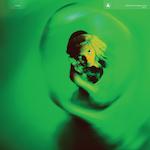
(Sacred Bones)

PSA: It would be easy to write this album off as simply an album of covers, but that would be a mistake.
In an age when the phrase “Taylor’s Version” boasts cultural currency and reboots of film series are as ubiquitous as air and water, the public is well-accustomed to the idea of an artist reconsidering an already released work or generational touchstone. For SPELLLING, which is the sobriquet of multi-instrumentalist and art pop futurist Chrystia Cabral, the malleability and potential deepening of her work had evidently manifested via performances with her live band, leading to songs from her prior albums—2017’s Pantheon Of Me, 2019’s Mazy Fly, and 2021’s The Turning Wheel—to enjoy further attention and subsequent rework.
Having visited the original versions of the songs Cabral selected for SPELLLING & The Mystery School, it’s worth noting that her efforts remain faithful to the originals while enhancing their best attributes. Released as an early single along with Cherry (original title Choke Cherry Horse from Pantheon Of Me), Under The Sun’s lush waves of arpeggiated piano notes had existed before as a loop of oscillating synthesizer tone. Under The Sun was a synth-pop track whose foundation provided, albeit unintentionally at the time, a basic demo to build up Mystery School’s beautifully explored arrangement. Cherry’s rework is also stunning—a bass tone, sultry and thick, creeping beneath a more refined guitar melody and crisp multi-tracked vocal harmonizing.
As an early introduction to the Mystery School’s M.O., the updates to both Under The Sun and Cherry provided a clear understanding of how far Cabral was pushing the songs, crafting a more uniform and cohesively performed experience. After all, the synth-rich Pantheon Of Me and Mazy Fly are both minimalist works, comparably speaking, offering plenty of room for alteration. Album opener Walk Up To Your House retains some of the original’s haunting disposition, bowed strings scribbled and dragged beneath layered vocals. The free-float of They Start The Dance finds its anchor, a lovely air of neo-soul/art pop resting atop a mid-tempo stride. I love how the kick drum chops up Haunted Water, an aspect of the original song that’s given added emphasis.
2021’s The Turning Wheel, however, is a heavily composed and ensemble-driven LP, deemed a creative departure that leans more musically progressive and dense. The assumption is that The Turning Wheel’s tracks would be considered complete, its arrangements tight enough for Cabral’s band to pick up and perform without much need for adjustment. For as full a listen, though, as The Turning Wheel is, it has a theatricality to it that doesn’t quite blend with Mystery School’s approach. The drama of the diary-like and emotive Boys At School remains intact, but the musical-like performance of Always (along with Phantom Farewell, Always is a digital track that’s not featured on the physical LP) is revised with a fuller, richer treatment. Even Cabral’s mood is changed, the original a light and airy bit of pleasant chamber pop that could almost work as a character piece in a musical. For the update, Always feels personal, Cabral’s vocal intensely tied to the song itself as its more soulful piano-led arrangement finds space for her voice to really shine.
Referencing The Turning Wheel’s original sequencing, Mystery School ends with the dancing piano melodies of Revolution and the nicely committed rhythm and blues of Sweet Talk. This pair of songs provided a solid conclusion once, so why not again?
Albums are obviously unchangeable. Songs, though, are a different story. On many occasions, I’ve found myself questioning the need for remaking what was, weighing the benefits of moving forward with new projects as opposed to remaining tied to presumably completed work.
While thinking about this review, I was reminded of Kraftwerk’s 1991 LP, The Mix, which is a collection of then-updated versions of the group’s best-known tracks. Like Cabral, Kraftwerk’s music had evolved through improvisation and rework via live performances (advancements in musical technology and modernized trends in electronic music also had an impact). The Mix acknowledged Kraftwerk’s creative growth and willingness to adapt. That said, The Mix is by no means representative of Kraftwerk’s most seminal work. For Cabral, though, I consider SPELLLING & The Mystery School to contain the definitive versions of these songs—already excellent work made better by careful rework and distinct (re)vision.
23 September, 2023 – 00:02 — Sean Caldwell